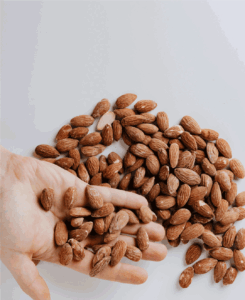
Not Including Nuts in Your Diet? Discover the Benefits They Offer to Your Health
Call: (909) 264 3667 Instagram Facebook-f They say that consuming a handful of nuts can
Although L-carnitine is an important amino acid which is increasingly used by athletes and has various applications in medical conditions, many people still do not understand its functions and benefits. If you’re wondering why L-carnitine is vital to your body and want to improve its performance, keep reading. A&W Clinic can help you learn all about this important amino acid.
Essentially, L-carnitine plays a vital role in energy production by transporting fatty acid chains into the mitochondrial matrix, enabling cells to break down fat to burn for energy. This fact is why L – Carnitine is well known as a fat burner, and is recommended for weight loss diets.
In general, L-carnitine helps the body maintain a healthy balance between fat and muscle due to the conversion of fat into energy. Taking concentrated doses in food and supplement form has been associated with several health benefits:
Different types of L- carnitine can be found, such as L- Carnitine Base, Acetyl-L-Carnitine, Propionyl-L-Carnitine, Fumarate – L – Carnitine, D – Carnitine, L-Carnitine L-Tartrate, among others. The consumption of a specific type will depend on each person’s particular needs. Some types can focus more on some benefits than the others. Acetyl-L-Carnitine for example, it is often used for conditions related to the nervous system for its penetrating position in the blood-brain barrier. Aesthetic & Wellness Clinic recommends Acetyl – L- Carnitine consumption, because it enhances the nervous system’s health, improving cognitive function (memory, attention and concentration) and reducing stress and depression. Acetyl – L- Carnitine also prevents neuron death, regenerating peripheral tissue damage caused by diseases or medical procedures, protecting the brain against neurological diseases such as Alzheimer and Parkinson.
As the richest source of L- Carnitine is derived from animal products, vegetarians and vegans may have lower levels of this important amino acid. It’s recommended for them to supplement their diet with a L- Carnitine supplement.
Older adults may consider including L-Carnitine for its several benefits as amino acid levels decline over time. What’s more, the intake can reduce fatigue, increase muscle and brain function, which also leads to quality of life improving in this population. L – Carnitine deficiency may also be connected to genetic components, causing synthesis problems, intestinal malabsorption, and liver failure. L-Carnitine deficiency can increase adipose tissue, reduce energy production, and cause premature aging.
People with epilepsy, heart failure, peripheral neuropathy, pregnant or breastfeeding women should take certain precautions when taking L-carnitine supplements as it may negatively affect them.
Possible side effects of oral L-carnitine are vomiting, dizziness, nausea, diarrhea, gastritis, abdominal pain, fever, and excessive sweating. These side effects can occur when consuming high doses of the amino acid, or in people who are contraindicated due to a medical condition or allergy to its ingredients.
L-carnitine is a safe supplement, although it is necessary to know how to use it and what the recommended dosage is based on individual’s needs. Consult with us! At Aesthetic & Wellness Clinic, we can provide proper guidance on L-carnitine consumption.

Call: (909) 264 3667 Instagram Facebook-f They say that consuming a handful of nuts can

Call: (909) 264 3667 Instagram Facebook-f Self-care is defined by the Wordl Health Organization (WHO)

Call: (909) 264 3667 Instagram Facebook-f According to key facts from the World Health Organization
Colton, CA : 851 S Mt Vernon Ave, Colton, CA 92324
Salinas: 622 E Alisal St, Salinas, CA 93905
Colton: Mon- Fr (8am – 5pm)
Salinas: Fr: (8:am – 5 pm)
Sat: (8:00 am – 11:30 am)
Salinas: (831) 422 – 4884
Colton: (909) 264- 3667
[email protected]